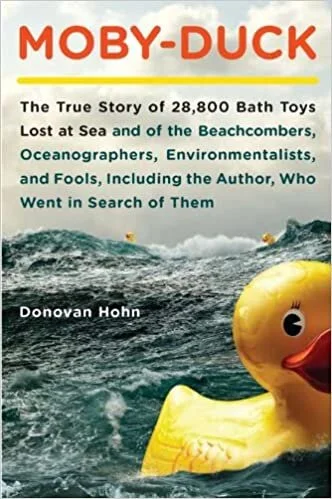5 Great Nonfiction Books with Not-So-Great Titles—and What We Can Learn from Them
In a matter of a second or two, someone will determine whether a book is relevant to their needs or interests and whether it’s worth their time or money.
It all starts with the title and subtitle.
A great title and subtitle tell readers, “This book is for you” and “This is what it’s about.” A great subtitle leaves them eager to find out more.
Some titles miss the mark.
Below, I’ll share some books—some of which still sold many many copies despite what I see as lackluster titles. I wouldn’t call them bad book titles, just less than ideal.
In many cases, books with vague, unclear, or overly creative titles will need publicity, advertising dollars, a famous author, a great cover, and a little bit of luck to attract a large number of readers.
If you’re a self-published author without a massive following, note what these nonfiction book titles did. Then consider NOT doing that!
If you’re a traditionally-published author, don’t forget that your acquisitions editor/publisher may know something you don’t.
Disclaimer: I have not read any of these titles yet, but if you’re interested in reading them, don’t let this post dissuade you! These books all seem to have a lot going for them!
Educated: A Memoir by Tara Westover
That title doesn’t tell you anything. A memoir of what? You wouldn’t know that the author grew up with reclusive survivalist parents and somehow educated herself, got into college, and went on to get a PhD.
This was one of the best books of 2018 and had nearly 36,000 Amazon reviews when I last checked. That would suggest it has sold hundreds of thousands of copies. Incidentally, the author’s bio is an example of a great Author Central bio.
Still Stripping after 25 Years by Eleanor Burns
This book is about quilting. The title is an attention-grabber, but it might throw some people off—or maybe even make them uncomfortable to repeat. This book contains reminisces and twelve patterns. Maybe the title (and a subtitle, which it doesn’t have) could better indicate what the book has to offer.
Maybe the author’s personality was so well known to her readership that it didn’t matter (I’m not sure). This book has something going for it: a great cover and a highly respected author.
Moby-Duck: The True Story of 28,000 Bath Toys Lost at Sea and of the Beachcombers, Oceanographers, Environmentalists, and Fools, Including the Author, Who Went in Search of Them by Donovan Hohn
What’s really clever here is that the title is memorable. It’s a play on a reference to famous literature. Such a technique often works well with titles. But the book isn’t about a massive creature. Or a deadly white duck. Its 29-word title seems a little, um, rambling. Superfluous.
In like vein, here’s a history book with an equally rambling title, a 28-word string of keywords about the antebellum US South. Yes, you want keywords in your title, but (in my opinion) these books may take it a little too far.
Slave in a Box: The Strange Career of Aunt Jemima by Maurice M. Manring
Strange” isn’t the right word, given that the book is really about “the continuing commodification of racial and gender inequality within white America.” The subtitle is an understatement, and as a result, it doesn’t really grab the reader.
The book sounds intriguing and important, though, and it has a great cover and excellent reviews.
What Color is Your Parachute?: A Practical Manual for Job-Hunters and Career-Changers by Richard N. Bolles
The title, at a glance, might suggest skydiving. The title, it turns out, was a reference to a one-liner joke the author made before he wrote it and is a play on a “golden handshake”: the terms that employee and employer might reach when they part ways. Many readers might not understand the reference. The subtitle makes it clear.
Interesting to note: the 2021 edition (the 50th anniversary edition) comes with a new subtitle!
It turns out this book was initially self-published in 1970, has been traditionally published by Ten Speed Press since 1972, and has sold 10 million copies. A review in Time Magazine described the book this way: “What Color Is Your Parachute? is about job-hunting and career-changing, but it’s also about figuring out who you are as a person and what you want out of life.”
Looking for a fun challenge? How would you re-title these books?
Give it a shot! Can you come up with a title that would be more appealing to the intended reader?
If you’re an author trying to come up with a title for your manuscript, I’ll have more to say about this again in the future.
You got this!




